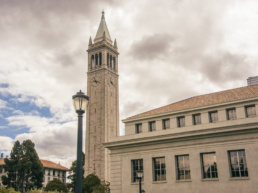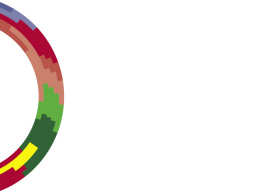The first episode of the podcast ‘O Burro e o Elefante’, a partnership between FLAD and Expresso, is now available on the usual platforms. In ‘Is America (so) divided?’, Pedro Magalhães and João Maria Jonet invited political scientist Mafalda Pratas to talk about the American electorate.
The new FLAD and Expresso podcast dedicated to American politics premieres today with the episode ‘Is America (so) divided?’. In this episode, Pedro Magalhães and João Maria Jonet talk to political scientist Mafalda Pratas about the American electorate.
The guest, who able to vote in the November 5 elections, tries to put into perspective the idea that Americans are divided into two antagonistic and extreme camps while the hosts add their view on polarization in the United States. To what extent does it exist? Only among politicians or also among the population? Is it irremediable or transitory? Does it destroy institutions or is it the natural result of participatory democracy? Is the glass half full or half empty? Unanswered questions… or maybe not.
Find out in the premiere episode, now available on Expresso and the usual podcast platforms:
‘O Burro e o Elefante’, hosted by Pedro Magalhães and João Maria Jonet, will discuss the state of the presidential race until election day, on November 5th. This podcast aims to analyze a structural theme that marks this electoral act and the debate on the forces behind the great political transformations we are witnessing in the USA. Available on Wednesdays.
About Mafalda Pratas:
Mafalda Pratas was born in Minneapolis, Minnesota, and grew up in Lisbon. He received his bachelor’s degree in economics and political science from the University of Illinois and recently completed his PhD in political science from Harvard University. His academic research analyzes voter behavior taking into account political institutions and parties. It is also interested in political inequalities and the dilemmas generated in the process of political representation. He studies several European countries and the United States in comparative perspective. He is currently a Research Fellow at the European University Institute and also writes a fortnightly column in Observador.
Related Posts
November 17, 2025
Projects Selected for the UP Program – Higher Education 2026
FLAD allocates €30,000 per project to…
November 5, 2025
Speaking Portuguese has become an advantage for Portuguese descendants in the U.S.
A new study on Portuguese-American…


